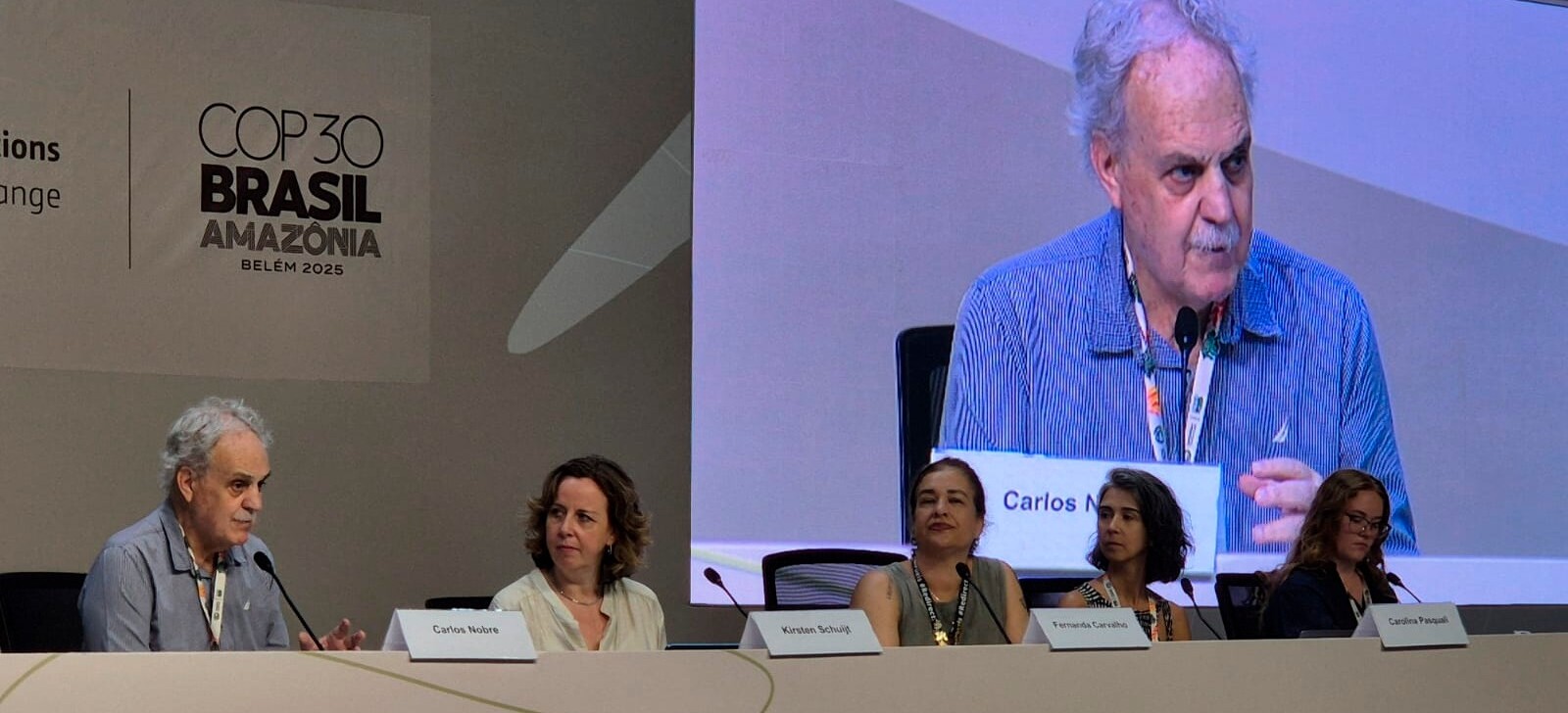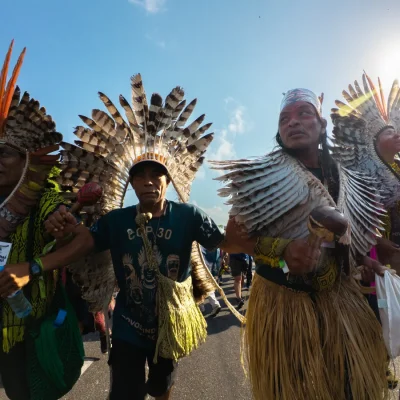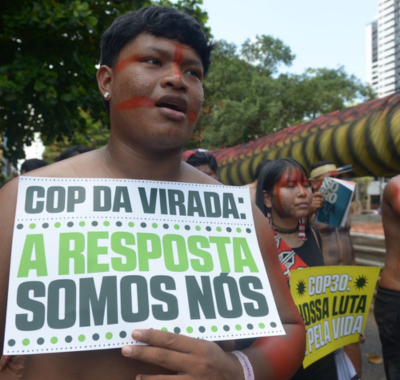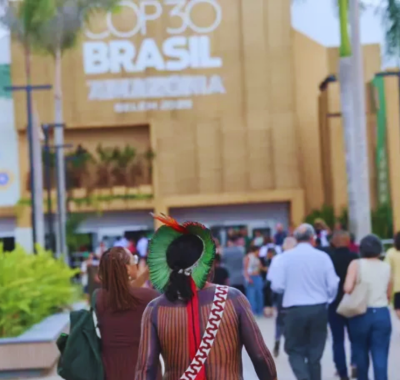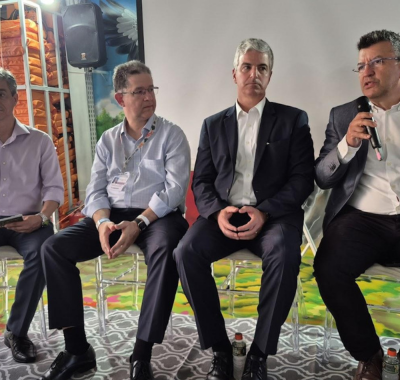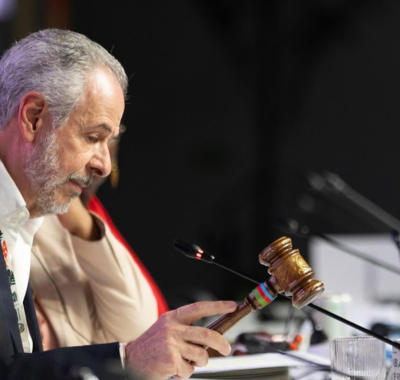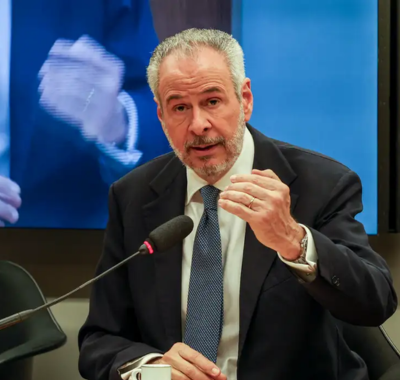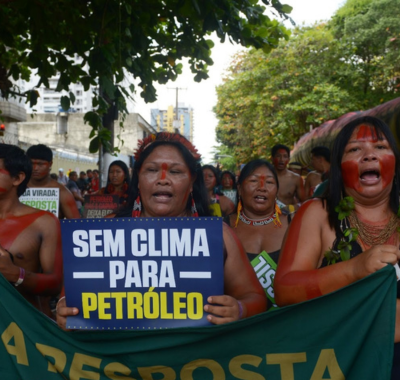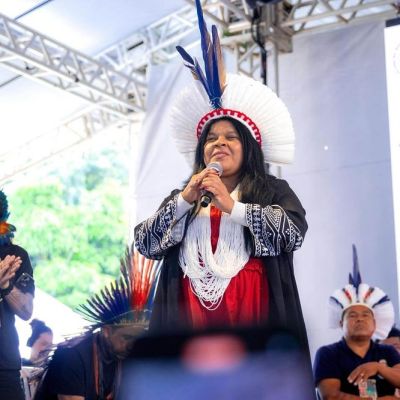Amazon degradation could result in two pandemics per decade, says climatologist
Fred Santana – From Cenarium
BELÉM (PA) – This Tuesday (18), climatologist Carlos Nobre stated to CENARIUM that Amazon degradation could result in two pandemics in a decade in the region.
During a press conference at the 30th United Nations Conference on Climate Change (COP30), in Belém, Brazil, the expert also warned that the Amazon could lose up to 70% of its forest cover in the coming decades if global warming exceeds 2°C – a scenario that, according to him, would significantly increase the risk of new pandemic outbreaks on a global scale.
The scientific foundations behind Brazil’s President Luiz Inácio Lula da Silva’s (PT) appeal for a global roadmap to halt deforestation and reverse forest devastation by 2030 were presented at the event. The proposal resumes and expands commitments made at COP28 in Dubai, but its implementation still raises doubts.
“We are experiencing an emergency. Global temperature is close to exceeding 1.5°C. If we reach 2°C, there will be no way to preserve the Amazon,” he said. According to Nobre, climate extremes already kill more than 150,000 people a year worldwide. “Heat waves, historic droughts, fires, and extreme rainfall are skyrocketing across the planet,” he said.
He stressed that the forest is dangerously close to a point of no return. “If we exceed 26%-25% deforestation, we’ll lose the forest. We are already at 18%,” he warned. He recalled that the impacts go far beyond the Amazon.
Carlos Nobre warned that extreme weather events already kill more than 150,000 people a year worldwide. (Fred Santana/CENARIUM)
“Forest degradation can release more than 250 billion tons of carbon and create conditions for large-scale epidemics and pandemics,” he explained. For the scientist, profound changes are urgent: “We need to zero deforestation in all biomes and reduce fossil fuel emissions by 75%,” he said.
Pressure for a global roadmap against deforestation
Nobre’s warnings echoed President Lula da Silva’s appeal to build an international roadmap capable of halting deforestation by 2030 – a commitment that gained new momentum at COP30, held in Belém. During the press conference, the three experts – Carlos Nobre, Kirsten Schuijt and Carolina Pasquali – underscored the need to align science, public policies and funding to tackle the climate crisis that threatens the planet’s largest biomes.
WWF International Director-General Kirsten Schuijt stressed that the world is heading towards irreversible loss of its most important forests. “We are reaching dangerous tipping points. We are not only losing forests and biodiversity, but we also risk losing all ecosystem services they provide to the planet,” she said.
For her, the Paris Agreement cannot be fulfilled without protecting tropical forests. “The science is clear: most deep deforestation occurs in tropical forests, which are essential for mitigating and adapting to the climate,” she stated.
Schuijt also highlighted the strength of Indigenous Peoples’ mobilization in Belém. “This is the largest Indigenous participation I’ve ever seen. They are asking for an end to deforestation and demanding restoration. We need to listen to these voices, listen to Lula, and listen to science,” she commented. She argued that COP30 should result in two major agreements: “We want to make history with a roadmap for the transition away from fossil fuels and a forest roadmap with real actions to reverse deforestation,” she declared.
Indigenous people are pushing for real action
Greenpeace Brazil’s Executive Director, Carolina Pasquali, said that COP30 cannot end without concrete results. “This conference must deliver real results. Lula asked for two global roadmaps – one to move away from fossil fuels and another to achieve zero deforestation by 2030,” she said.
Pasquali emphasized that indigenous mobilization has been pressuring governments and generating progress: “Ten [Indigenous Land] demarcations were announced yesterday and four official recognitions today, including one with more than two million hectares in Pará. This is a direct result of indigenous mobilization.”
She argued that countries should adopt a global roadmap for forest action, not just national plans. “If it’s not here and now, then when will it be?” she asked, adding that the document must include guidelines for NDCs, guarantees of territorial rights, direct access to financing, and transparency systems.
Carolina Pasquali is the executive director of Greenpeace Brazil (Reproduction/Social Networks)
“What we have on the table today is disturbing. We need to go further,” she explained. She concluded by underscoring the urgency of concrete measures: “The streets of Belém shouted: ‘We need action, not words!’. We can’t leave this COP with statements of intent while the Amazon is close to the point of no return,” she said.
Science underscores warnings
One of the most robust studies on the Amazon’s tipping point is “Critical transitions in the Amazon forest system“, published in Nature in 2024. It demonstrates that a significant portion of the forest already shows signs of fast loss of resilience, bringing the biome closer to an abrupt and irreversible change into a state of degraded vegetation.
In the health area, the report “Climate change is creating ‘new vulnerabilities’ for disease pandemics”, published in 2023 by the Carbon Brief platform, shows that climate change increases the risk of zoonotic diseases and facilitates the emergence of new epidemics and pandemics.
The material describes how global warming, pressure on habitats, and redistribution of species increase contact between animals and humans, expanding opportunities for pathogens to be transferred and therefore increasing the epidemiological risk associated with environmental collapse.
This report was produced by Revista Cenarium through the Collaborative Socio-environmental Coverage of COP 30. Read the original report at: https://revistacenarium.com.br/degradacao-da-amazonia-pode-gerar-duas-pandemias-por-decada-diz-climatologista/

